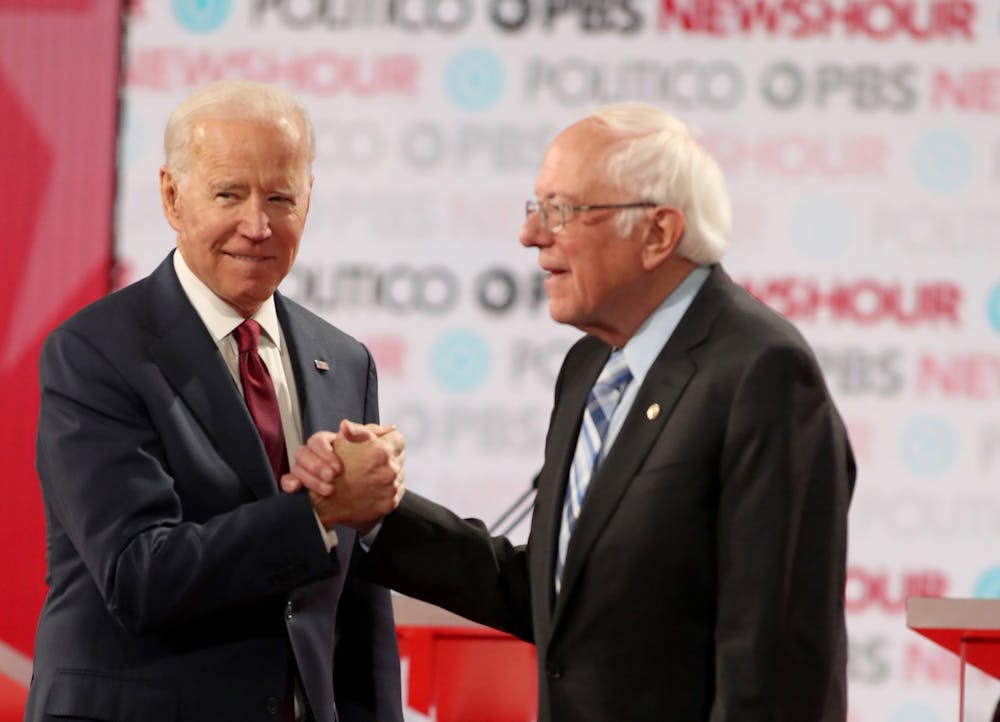Former Vice President Joe Biden accused Sen. Bernie Sanders' presidential campaign this past Sunday of releasing a "doctored" video wherein Biden appears to support privatizing Social Security. Politifact reported Biden's comments were taken out of context and didn't reflect his views, but the video wan't altered in any way.
There is a large difference between taking a quote out of context and editing a video to show something that didn't happen, and it's dangerous for Biden to conflate the two.
This distinction may seem small, but it matters.
By failing to distinguish between what has been taken out of context and what has been deceptively edited, Biden helped normalize the fact that we may soon lose the ability to trust our own eyes and ears.
When Biden says that a video is “doctored,” he is using the language associated with deepfakes, or video and other digital media that has been edited by artificial intelligence technology to create realistic, yet false portrayals of individuals.For instance, a deepfake of Nancy Pelosi circulated last year that made her appear drunk during a speech. She wasn't.
Deepfakes represent a dangerous threat to election integrity because they have the ability to realistically simulate real recordings and spread disinformation. Experts believe the situation is only going to get worse.
Hany Farid, a computer science professor at the University of California at Berkeley, told the Washington Post, "We are outgunned. The number of people working on the video-synthesis side, as opposed to the detector side, is 100 to 1."
In other words, there is far more talent and money being used to create more sophisticated deepfakes than there is spent developing technology that could detect fakes.
This problem will only get worse as technology becomes more advanced. Some experts, such as John Villasenor, a professor of electrical engineering, law, public policy and management at the University of California at Los Angeles, believes deepfakes might be used to influence voters with outright false information in 2020.
Biden's comments implied an equivalence between deepfakes and more standard political practices such as quoting someone out of context. Context greatly informs one's remarks, and the context appears to support Biden's claims that he does not want to cut Social Security.
Yet on a larger level, this equivalence paints dangerous deepfake technology as a standard political ploy similar to taking remarks out of context, instead of a new, sinister technology with the potential to gravely damage our political institutions.
Candidates for major parties need to recognize the seriousness of the threat posed by deepfakes and speak about it with caution. We cannot rely on President Donald Trump and the Republican Party to do so. After all, Trump’s personal lawyer, Rudy Guiliani, was one of the Twitter users who helped the Pelosi deepfake go viral.
In the absence of responsibility from Republican leaders, it falls on the Democratic Party to recognize the immense threat this technology poses to our elections and respond accordingly.
As the 2020 election approaches, voters already must navigate Twitter trolls and fake news on their way to the polls. Deepfakes represent the next obstacle toward making an informed choice, and our major party candidates must treat them as such.
Christian Sayers (he/him) is a senior studying mathematics and economics. He hopes to someday own a large rabbit.





